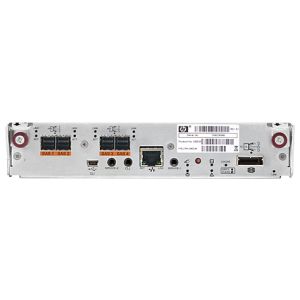Choosing the Right Storage Solution: A Comparative Guide
Choosing the Right Storage Solution: A Comparative Guide
HPE MSA Storage Overview:
HPE MSA Storage stands out as a family of modular smart arrays that deliver affordable, high-performance, and user-friendly shared storage tailored for small to medium-sized businesses. The latest iteration, MSA Gen6, introduces new features, making it even more robust. Key advantages include:
- Extreme Simplicity: HPE MSA Storage is designed to be user-friendly, offering easy setup, usage, and management without necessitating specialized knowledge. Intuitive setup, guided management, and hands-free automatic performance tiering eliminate IT complexity.
- High Performance: MSA Gen6 excels in delivering remarkable performance through a new Gen6 Acceleration ASIC and continuous workload optimization. Achieving up to 45% more IOPS and 2x lower latency than the previous generation, it ensures efficient data access.
- Affordability: With a low entry price and a cost-effective total ownership model, HPE MSA Storage is a suitable choice for budget-conscious businesses. It enables scalability as your business grows and seamlessly integrates with widely used hypervisors and operating systems.
- Reliability: Built with enterprise-class features and quality, HPE MSA Storage ensures high availability and data protection. MSA Gen6 introduces new in-array data protection capabilities like virtualized snapshot technology and remote replication, supporting disaster recovery through HPE GreenLake cloud services.
HPE MSA Storage vs. QNAP and Synology:
QNAP and Synology - NAS Overview:
QNAP and Synology are renowned brands in the NAS market, providing various products catering to diverse needs. NAS devices offer file-level access, supporting collaborative environments and centralized storage management. Advantages include:
- Flexibility: NAS devices, exemplified by QNAP and Synology, allow customization and expansion of storage capacity and performance according to specific needs.
- Accessibility: NAS devices facilitate data access from anywhere with an internet connection, supporting file-level access and integration with cloud services.
- Security: NAS devices offer security features such as encryption, user permissions, firewall, and antivirus, providing a comprehensive approach to data protection.
Considerations for NAS:
- Complexity: NAS devices may pose complexity in setup, configuration, and maintenance, especially for non-technical users.
- Performance: While suitable for various use cases, NAS devices may not match the performance of dedicated storage arrays in high-demanding workloads.
- Scalability: NAS devices have scalability limitations compared to dedicated storage arrays.
Dedicated Storage Arrays - HPE MSA Storage:
HPE MSA Storage, as a dedicated storage array providing block-level access, excels in scenarios requiring low-latency, high-throughput, or random access to data. Key advantages include:
- Performance: Dedicated storage arrays, like HPE MSA Storage, offer superior performance and reliability, designed and optimized for high-demanding workloads.
- Scalability: Dedicated storage arrays provide greater scalability and flexibility, supporting larger storage capacity and performance to adapt to changing business needs.
- Simplicity: Dedicated storage arrays offer simplicity and ease of use, designed to be plug-and-play with minimal configuration.
Considerations for Dedicated Storage Arrays:
- Cost: Dedicated storage arrays may entail higher upfront and operational costs compared to NAS devices.
- Compatibility: Compatibility with different servers, hosts, or applications may vary, requiring additional components and potentially limiting interoperability.
- Accessibility: Dedicated storage arrays may not offer the same level of accessibility and features as NAS devices, focusing on serving specific servers or hosts.
NAS vs. SAN:
- NAS (Network-Attached Storage): QNAP and Synology specialize in NAS solutions, providing file-level access suitable for collaborative environments, file sharing, and centralized storage management.
- SAN (Storage Area Network): HPE MSA Storage falls under the category of SAN, offering block-level access designed for high-performance applications like database management, virtualization, and analytics.
When choosing between NAS and SAN, consider the nature of your applications, data access requirements, and performance needs. NAS is suitable for file-level access, collaboration, and simplicity, while SAN excels in high-performance scenarios requiring block-level access.
How to Choose the Right Product:
Considering the diverse offerings from HPE MSA Storage, QNAP, and Synology, the key to selecting the right product lies in evaluating specific factors:
- Data Type and Size: Consider the nature and size of your data. HPE MSA Storage may be ideal for structured data, while NAS solutions are versatile for various data types.
- Performance Requirements: Assess the performance needs of your applications and workloads. HPE MSA Storage is suitable for high-performance demands, while NAS solutions provide flexibility.
- Budget Consider











